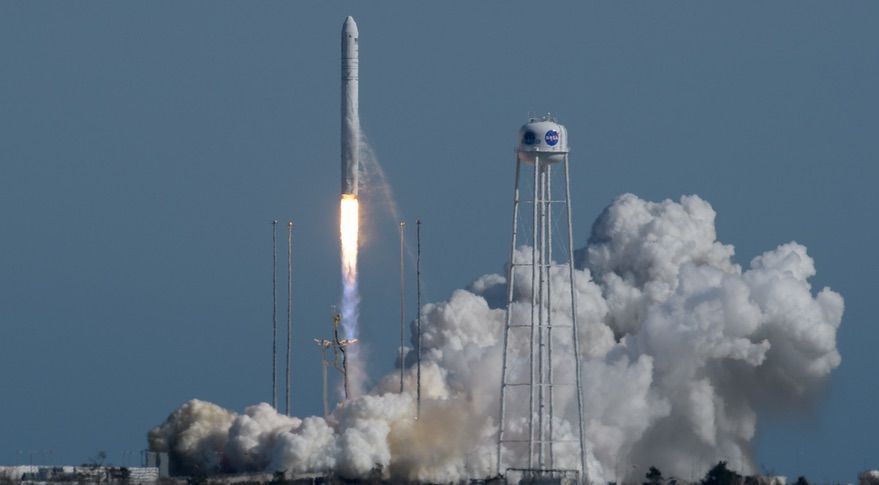Category: business – Page 241
Israel fast becoming world hub of aging industry
Eric Kilhstrom (Director of Aging Analytics Agency and former Interim Director of the £98 million Healthy Ageing Industrial Strategy Challenge Fund) is interviewed about the agency’s recent “Longevity Industry in Israel Landscape Overview 2019” report.
New report shows that Israel’s academic and business ecosystem is the optimal base for an internationally recognized longevity industry hub.

Almost half of World Heritage sites could lose their glaciers by 2100
Glaciers are set to disappear completely from almost half of World Heritage sites if business-as-usual emissions continue, according to the first-ever global study of World Heritage glaciers.
The sites are home to some of the world’s most iconic glaciers, such as the Grosser Aletschgletscher in the Swiss Alps, Khumbu Glacier in the Himalayas and Greenland’s Jakobshavn Isbrae.
The study in the AGU journal Earth’s Future and co-authored by scientists from the International Union for Conservation of Nature (IUCN) combines data from a global glacier inventory, a review of existing literature and sophisticated computer modeling to analyze the current state of World Heritage glaciers, their recent evolution, and their projected mass change over the 21st century.

Tesla to slash prices of solar panels in attempt to revive sales
Some very good news.
Tesla plans to sell its solar panels at a price that’s 38 percent lower than the national average in an attempt to halt the decline of its solar business. The New York Times notes that the head of Tesla’s solar department, Sanjay Shah, wants to sell panels for between $1.75 and $1.99 a watt, compared to the national average of $2.85.
Asteroid Mining: Getting the first mission off the ground
A fully-contained near-Earth asteroid retrieved to cislunar space can be used as a Research and Development destination for resource extraction and engineering tests as space-native material, unaltered by a radical change in environment, in industrial quantity, and in an accessible orbit.
As a geologist and data manager working in petroleum exploration, I’m not qualified to analyze an all-encompassing view of asteroid mining…but maybe I’m qualified to share what I see from my perspective. Rather than looking at all the reasons why asteroid mining is not currently happening, I’d like to dive deep into how changing decision-making perspectives may make a mission possible.
As human activity and accessibility to do business in space broadens, potential demand for resources delivered to space will also increase. Now is the time to start looking at alternative sources of materials to fuel this expansion. Rather than launching everything from Earth, some materials could be sourced from near-Earth asteroids that are energetically easier to reach than our Moon. While mining asteroids for bulk materials like water might be theoretically profitable compared to launch from Earth, the upfront costs so far have been prohibitive. We’ve already seen the first wave of asteroid mining startups come and go. The high cost of technology development and long timescales for return-on-investment have kept commercial asteroid mining missions grounded.

The U.S. Military: Like the French at Agincourt?
“The traditional model of U.S. military power is being disrupted, the way Blockbuster’s business model was amid the rise of Amazon and Netflix,” Brose writes. “A military made up of small numbers of large, expensive, heavily manned, and hard-to-replace systems will not survive on future battlefields, where swarms of intelligent machines will deliver violence at a greater volume and higher velocity than ever before.”
America risks a catastrophic defeat if it doesn’t radically change the way it thinks about war.

Northrop Grumman highlights benefits of Orbital ATK acquisition
WASHINGTON — Nearly a year after Northrop Grumman’s acquisition of Orbital ATK closed, company executives say they’re getting the benefits they expected from the deal in terms of cost savings and new business.
In a quarterly earnings report issued April 24, Northrop reported total sales of $8.19 billion and net earnings of $863 million for the first quarter of 2019. The company had total sales of $6.74 billion and net earnings of $840 million for the same quarter of 2018.
The increase in sales was due almost entirely to the addition of the Innovation Systems business unit, the former Orbital ATK. That unit generated $1.44 billion in sales for the quarter. In the first quarter of 2018, the last full quarter Orbital ATK was still an independent company, it reported sales of $1.31 billion.

Light-based computer hardware that can compete with silicon
A team of researchers at NTT Corporation has developed a way to use light-based computer hardware that allows it to to compete with silicon. In their paper published in the journal Nature Photonics, the group describes their research, the devices they created and how well they worked.
Computer scientists have known for some time that the era of increasing computer speed by modifying silicon-based computer parts is coming to an end. To that end, many have turned to quantum computing as the way to speed up computers—but to date, such efforts have not led to useful machines and there is no guarantee they ever will. Because of that, others in the computer business are looking for other options, such as using light to move data around inside of computers instead of electrons. Currently, light is generally only used to carry data long distances. In this new effort, the researchers report that they have developed computing devices based partially on light that performed as well as electron-based hardware.
The idea of using only light as a data medium in computer hardware is still a long way off—instead, engineers are focusing on using light in areas where it seems feasible and electrons everywhere else. Because of that computer devices must be able to convert between the two mediums, a problem that until now has prevented such devices from being built. Prior efforts have required too much power to be feasible and the conversion process has been too slow. To get around both problems, the researchers developed a new kind of photonic crystal that was able to diffuse light in a way that allowed it to follow a designated path on demand and to also be absorbed when needed to be used for generating current. The crystal was also able to work in reverse.